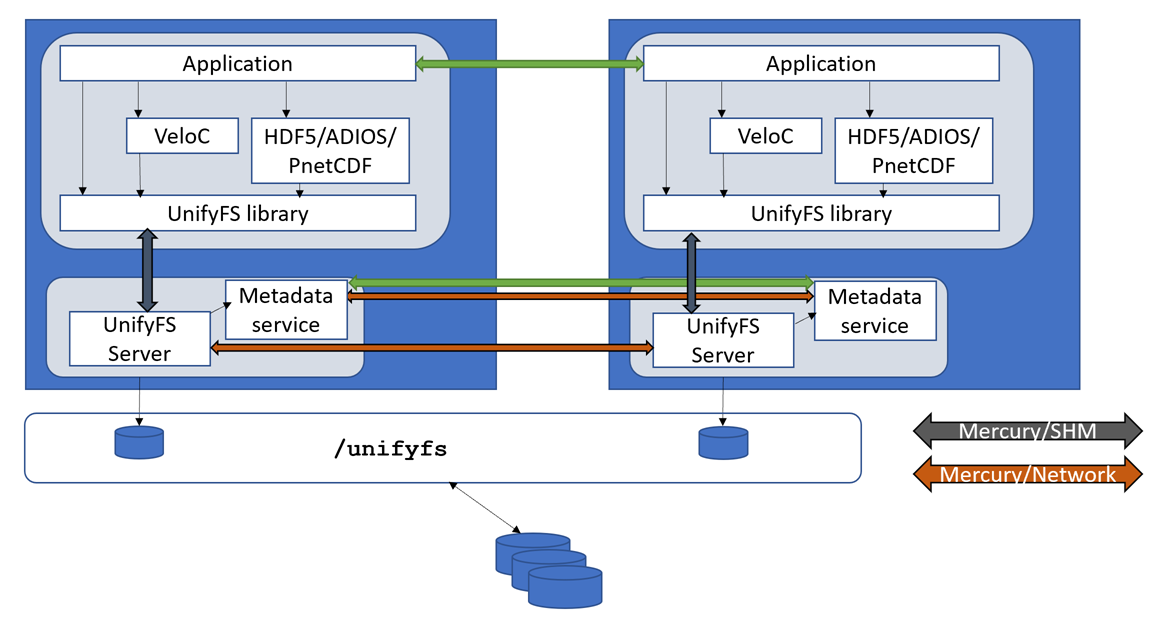Overview¶
UnifyFS is a user-level file system under active development that supports shared file I/O over distributed storage on HPC systems, e.g., node-local burst buffers. With UnifyFS, applications can write to fast, scalable, node-local burst buffers as easily as they do to the parallel file system. UnifyFS is designed to support common I/O workloads such as checkpoint/restart and other bulk-synchronous I/O workloads typically performed by HPC applications.
Because the UnifyFS file system is implemented at user-level, the file system is visible only to applications linked with the UnifyFS client library. A consequence of this is that traditional file system tools (ls, cd, etc.) installed by system administrators cannot act on files in a UnifyFS file system because they are not linked against the UnifyFS client library. The lifetime of a UnifyFS file system is the duration of the execution of the UnifyFS server processes, which is typically for the duration of an HPC job. When the servers exit, the UnifyFS file system terminates. Users must copy files that need to be persisted beyond the lifetime of the job from UnifyFS to a permanent file system. UnifyFS provides an API and a utility to perform these copies.
High Level Design¶

This section provides a high level design of UnifyFS. UnifyFS presents a shared namespace (e.g., /unifyfs as a mount point) to all compute nodes in a job allocation. There are two main components of UnifyFS: the UnifyFS library and the UnifyFS server.
The UnifyFS library is linked into the user application. The library intercepts I/O calls from the application and sends I/O requests for UnifyFS files on to the UnifyFS server. The library forwards I/O requests for all other files on to the system. The UnifyFS library uses ECP GOTCHA as its primary mechanism to intercept I/O calls. The user application is linked with the UnifyFS client library and perhaps a high-level I/O library, like HDF5, ADIOS, or PnetCDF.
A UnifyFS server process runs on each compute node in the job allocation. The UnifyFS server handles the I/O requests from the UnifyFS library. The UnifyFS server uses ECP Mochi to communicate with user application processes and server processes on other nodes.